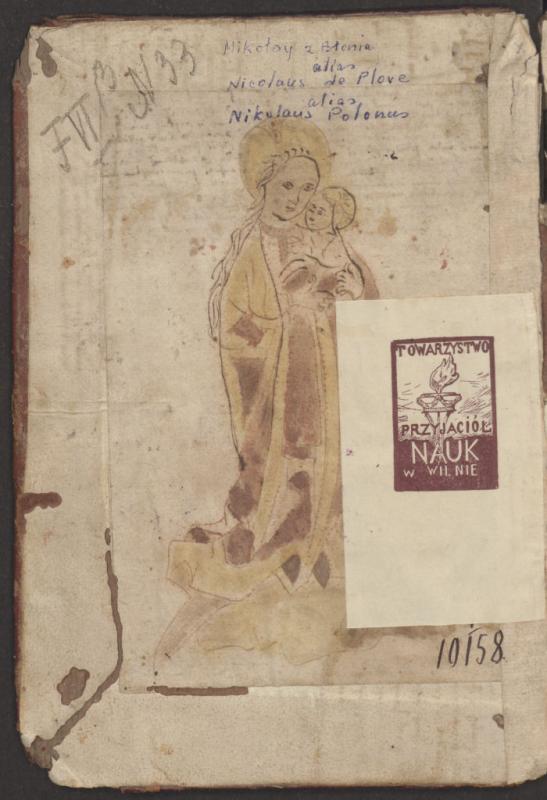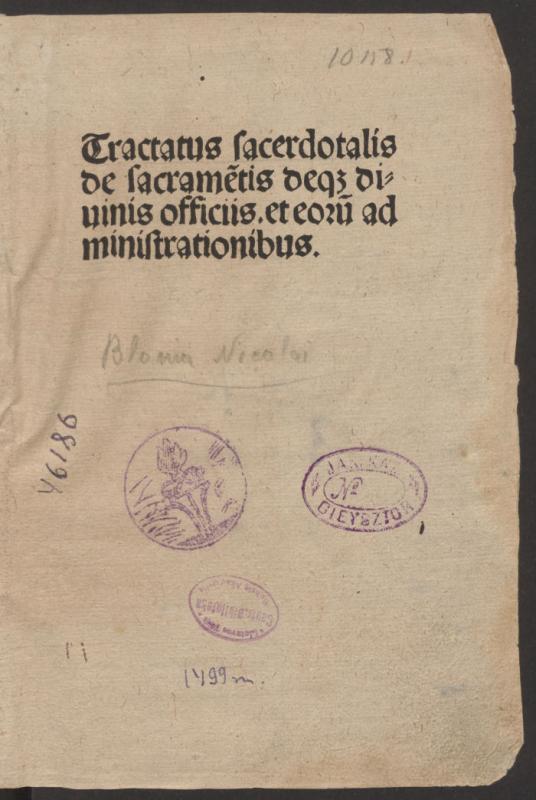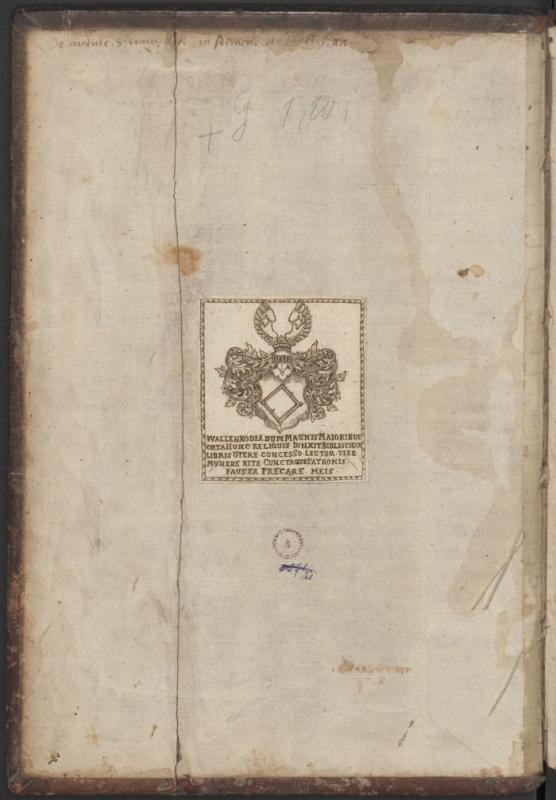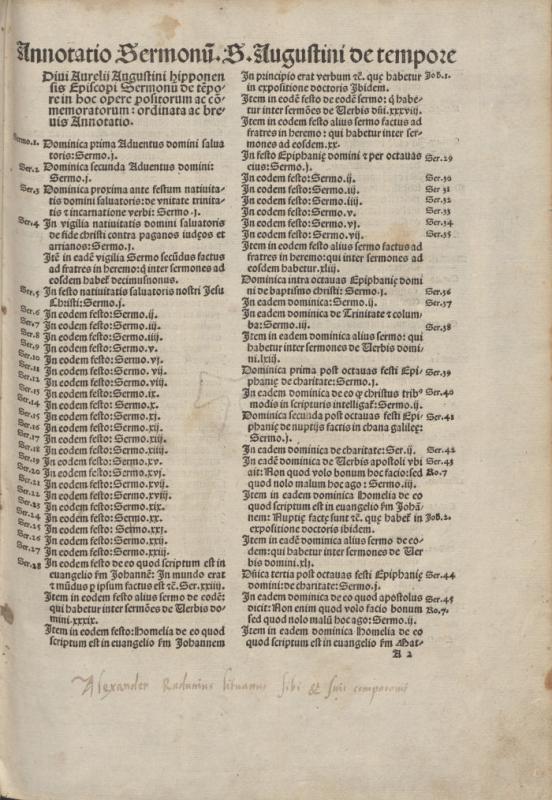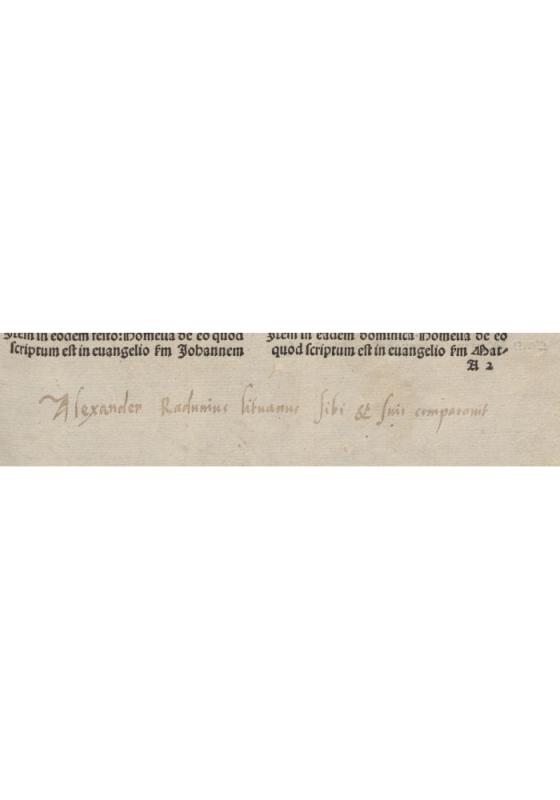Books’ roads and destinies
Incunabula in the Wroblewski Library of the Lithuanian Academy of Sciences
Another area of interest for modern scholars is the studies of provenance (book ownership marks). In the libraries of the major incunabula printing centers one can find books that were printed and bound in the same city and, after changing hands just once or a few times, have remained in the same place to this day. Sometimes the movement of an incunabulum throughout 500 years has taken place in an area of only a few square kilometers. Speaking of Lithuania, incunabula had been travelling to our country for a much longer time, often stopping along the way, as evidenced by marks in the books. Only a few of the former owners of these books will be remembered here. A separate exhibition would be required to cover all the routes by which the incunabula have come to the Wroblewski Library.
Most of the incunabula were brought to the library due to political circumstances of some kind: wars, occupations, forced closures of various institutions. A few incunabula belonged to two monasteries of the Basilian Order, from Zhirovici and Vilnius. In the 19th century, after the Russian Empire forcibly closed the Basilian Order and incorporated it to the Orthodox Church, in 1845 the seminary from Zhirovici was moved to Vilnius and began to function as the Lithuanian Orthodox Seminary (the latter was closed on the 1st of January 1940). When the seminary was moved, the books were also moved here and were added to the library of the Vilnius Seminary. The incunabula belonging to the Zhirovici Basilian Order are very easy to identify, as there are numerous handwritten marks throughout the book: both book signatures and provenance records.
LMAVB RSS I-9
ISTC ih00484300, GW 13447
The Wroblewski Library has also sheltered books by the Vilnius Society of the Friends of Science (Towarzystwo Przyjaciół Nauk w Wilnie; 1907-1939). Some of them belonged only to this society, while others have witnessed a longer history of Polish organizations in Lithuania. In 1914, the Society of Friends of Science in Vilnius merged with the Society of the Museum of Science and Art in Vilnius (Towarzystwo Muzeum Nauki i Sztuki w Wilnie), founded in 1906. The Society's library was founded by Antanas Tiškevičius, who also donated 107 rare books and several manuscripts. Among the incunabula currently kept in the library, three testify to this story.
LMAVB RSS I-21
ISTC ip00650000, GW 12257
LMAVB RSS I-31
ISTC ip00520000, GW M41794
The Vilnius Society of the Friends of Science has been supported by various individuals who have donated books to its library. In 1909–1910 Jonas Švanskis donated some of his rare books. Among them, we also find books bearing the stamp of an antiquarian, a participant in the 1863 Uprising, Jokūbas Geištoras. The latter had a library of about 5000 volumes, the remnants of which were bought by the aforementioned Jonas Švanskis after Geištoras’ death in 1900.
LMAVB RSS I-5
ISTC in00089000, GW M26308
When many institutions were forced to close, their libraries were dispersed and some books disappeared during and after World War II. Public and research libraries had to become a place to rescue and preserve what was possible to save. It was not only the private and institutional libraries that existed in Lithuania that were cared for. Many documents, including books, were rescued from the demolished and war-torn Königsberg. Among them were unique items, such as the Regulae cancellariae (I-12j), already discussed in this exhibition, and other significant or, for one reason or another, interesting incunabula. One of them is the sermons of St Augustine (parts VI and VII), brought from the Valenrodt Library. In the 16th century they belonged to the Evangelical Lutheran priest and Lithuanian literary figure Aleksandras Rodūnionis. He wrote in a book that he bought it for himself and his relatives (Latin: "sibi et suis"). The very existence of this book is significant, but what is even more incredible is that when the book arrived in Vilnius from Königsberg, the entire book, bound in two volumes, ended up in the same city. The first five parts of the sermons had been in Lithuania since the middle of the 18th century: they belonged to the Jesuits, then to the Bernardines, and are now preserved in the library of Vilnius University (Ink. 218).
LMAVB RSS I-34 (VI dalis; VII dalis)
ISTC ia01308000, GW 02920
Almost every incunabulum tells a story about its former owners: it may be short, long, less or more accurate, simple or full of nuance. Only fragments of a few of them are briefly discussed here. One could mention the incunabula of the Ivan Lutskievič Belarusian Museum, the incunabula of the library of the Vilnius’ Evangelical Reformer Synod, the incunabula of the Congregation of the Mission of Vilnius (who have forgotten to include the word “missionaries” in their short Latin inscription in the book), and many others. But, as mentioned above, a separate exhibition would be necessary to cover them all, and for the time being, those who are interested are invited to browse the Wroblewski Library incunabula at least in the virtual space, and to search for signs left by the former owners.

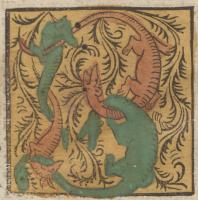
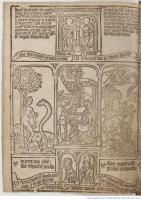
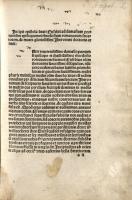
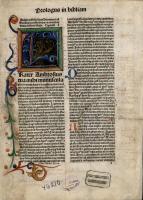
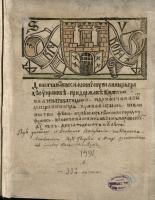
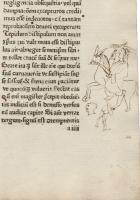
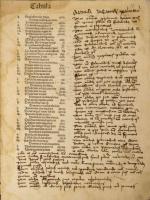
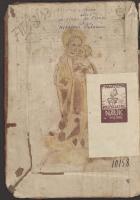
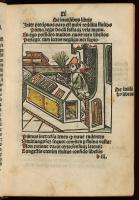
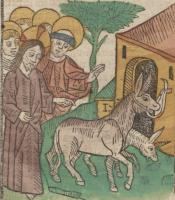
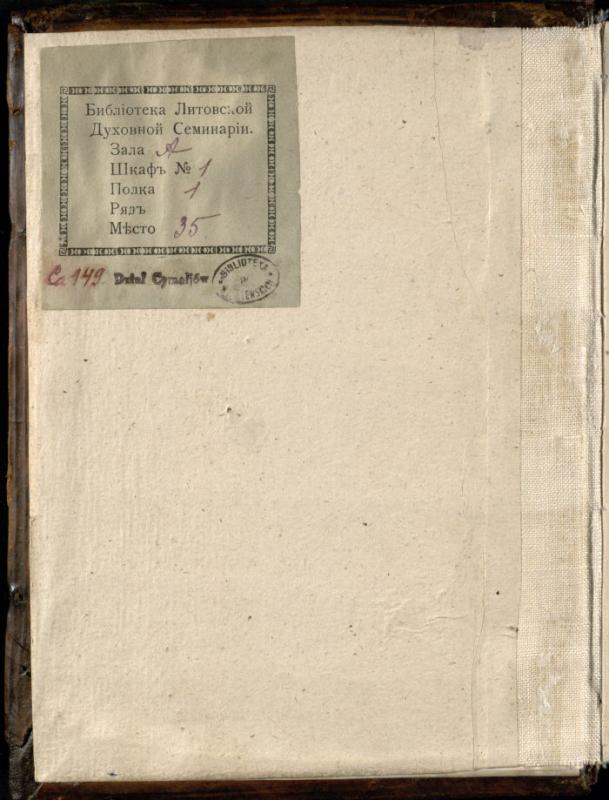
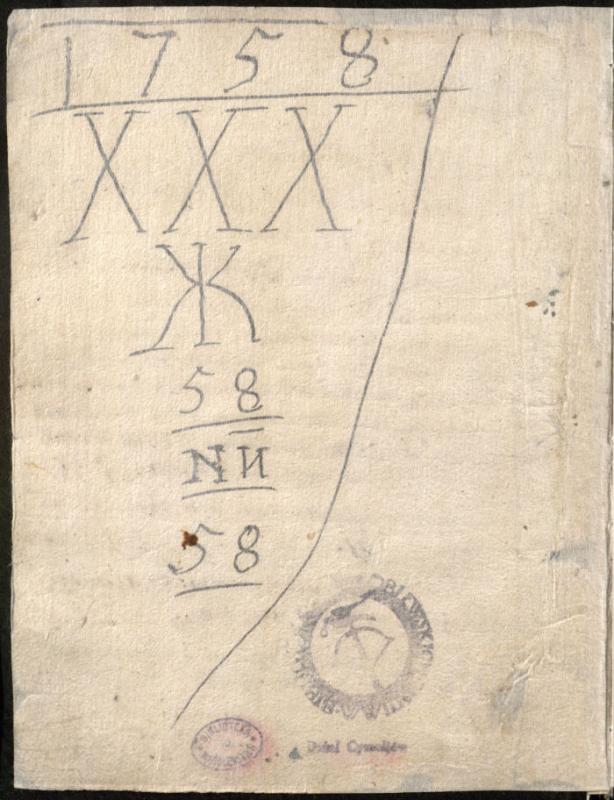
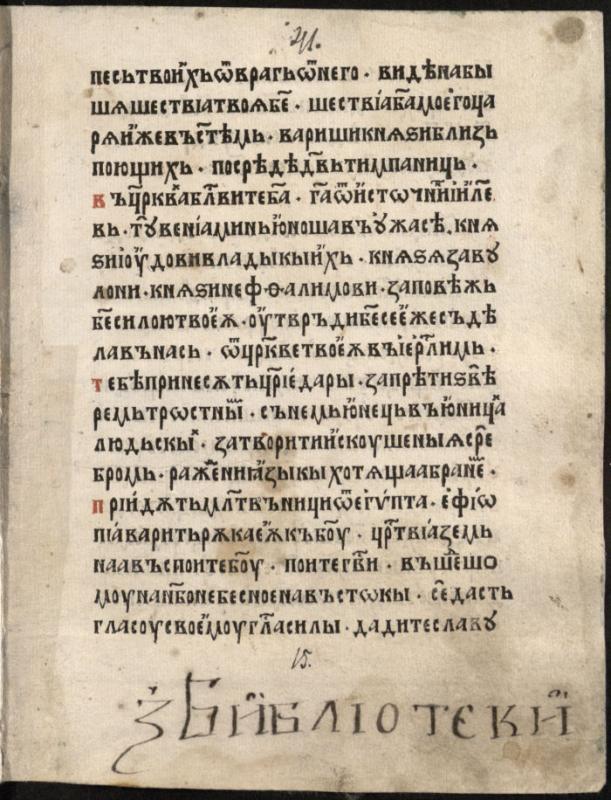
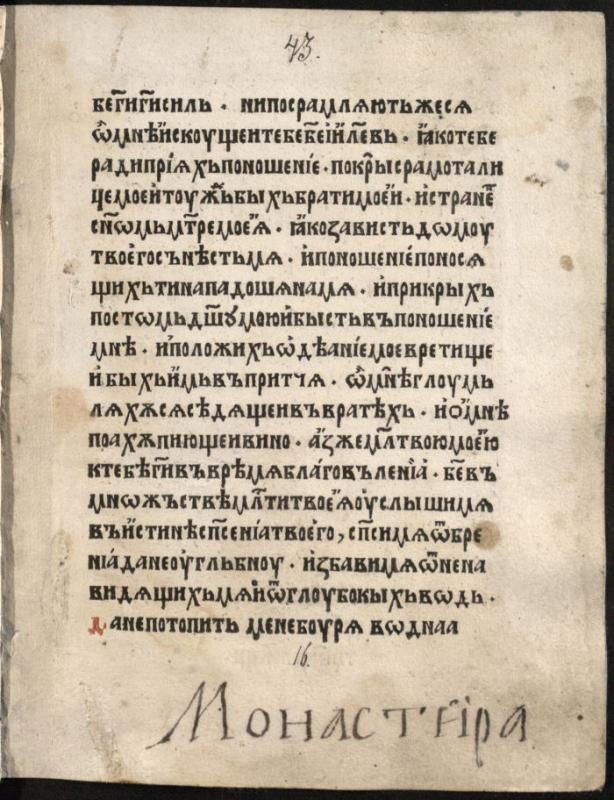
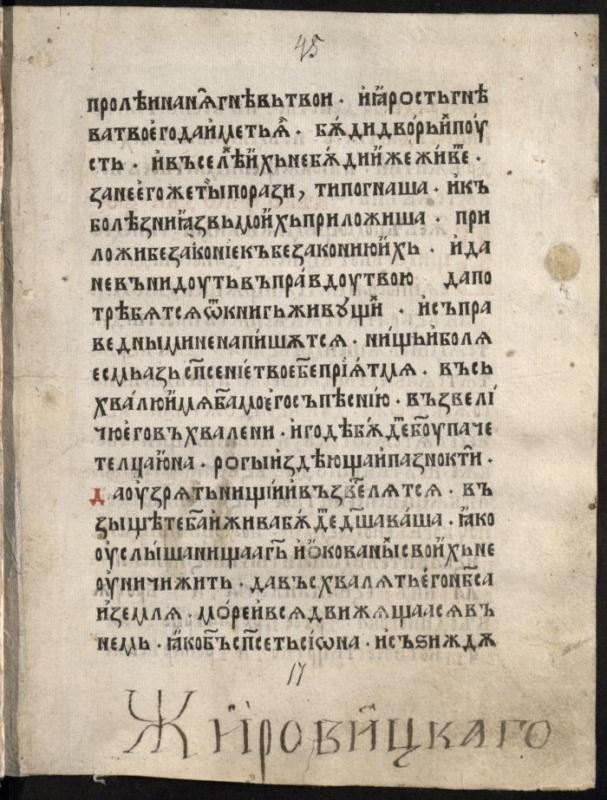
![Piro, Henricus de. Super institutiones. [Köln: Johann Koelhoff, ca 1481]. Piro, Henricus de. Super institutiones. [Köln: Johann Koelhoff, ca 1481].](http://web6.mab.lt/files/large/f2553941d0e80e5c87d6ec38f6ba4001a6bbd72a.jpg)
![Petrus de Palude. Sermones thesauri novi de tempore. Strasbourg: [typogr. operis „Vitas Patrum“], 1484. Petrus de Palude. Sermones thesauri novi de tempore. Strasbourg: [typogr. operis „Vitas Patrum“], 1484.](http://web6.mab.lt/files/large/3564a5e48d25f77d14150944c661fa24a3c62c3c.jpg)
